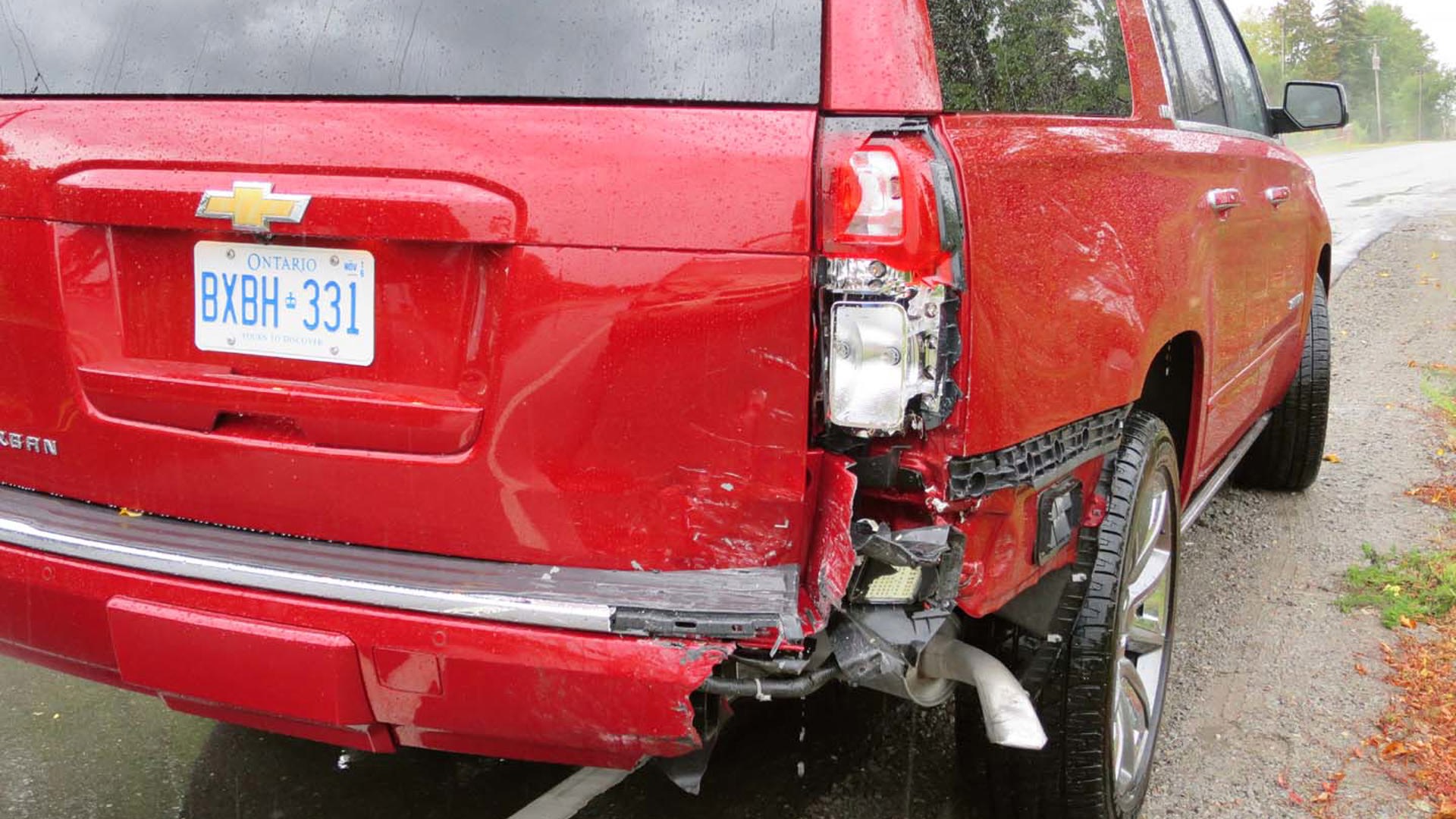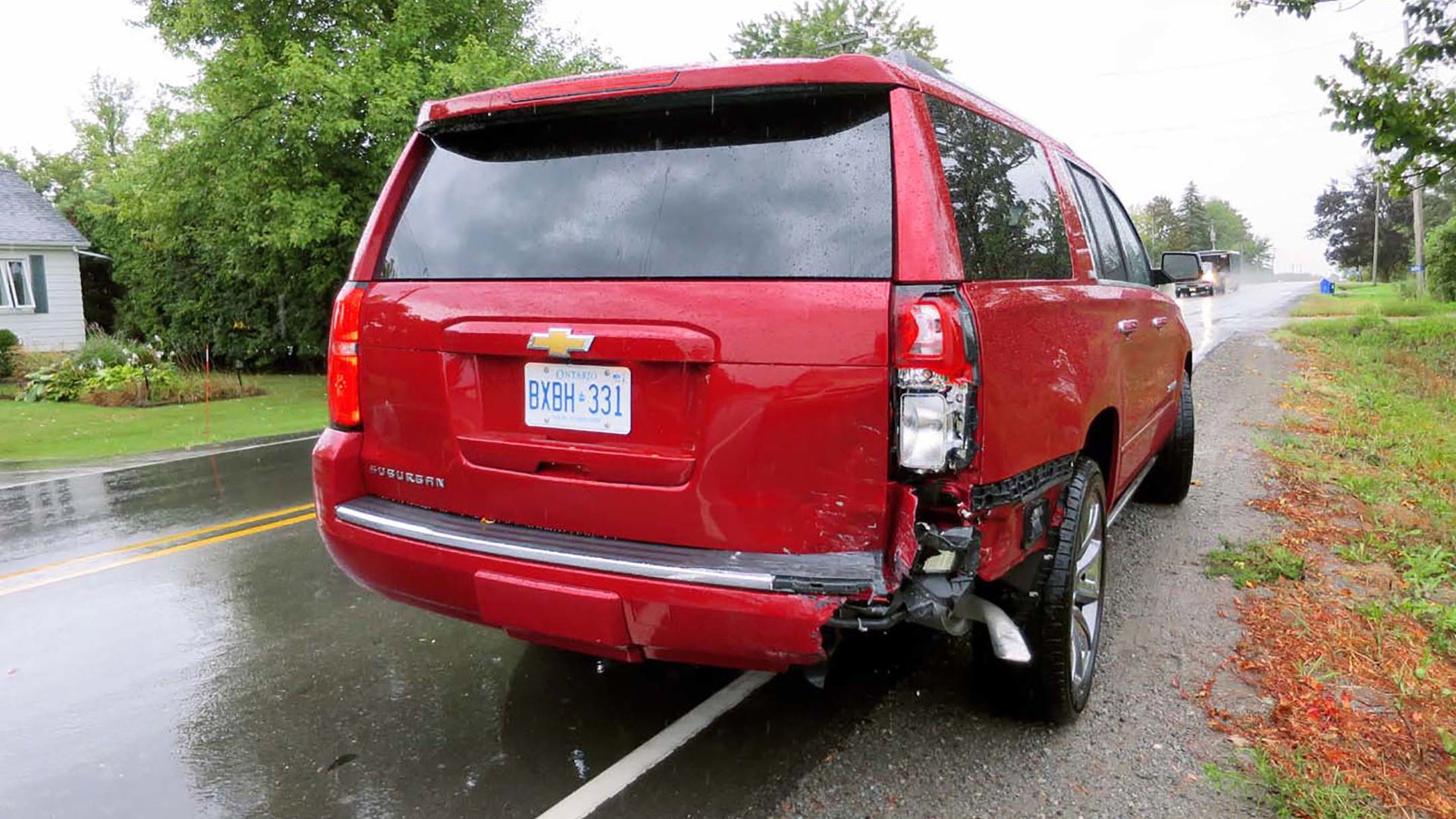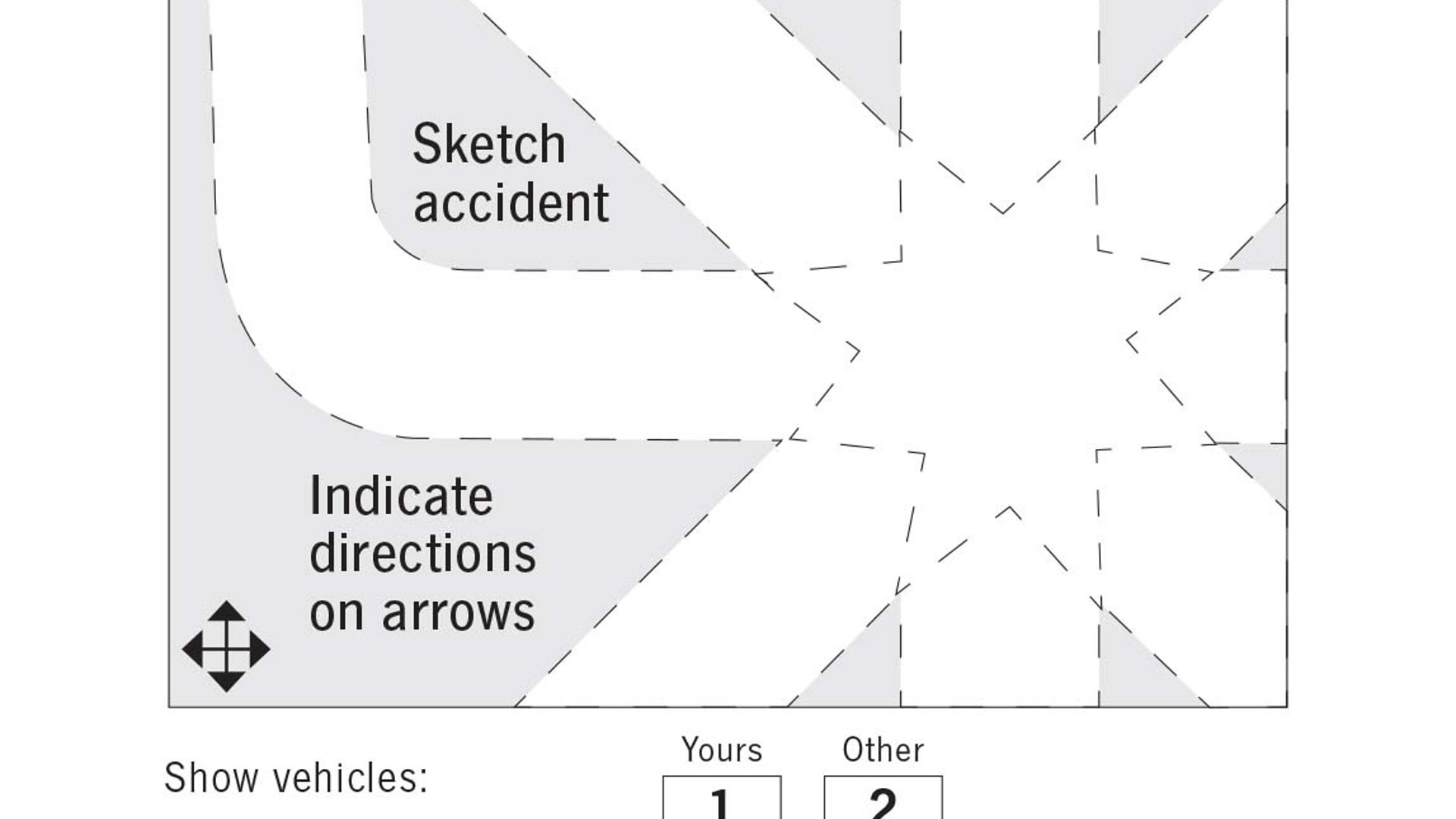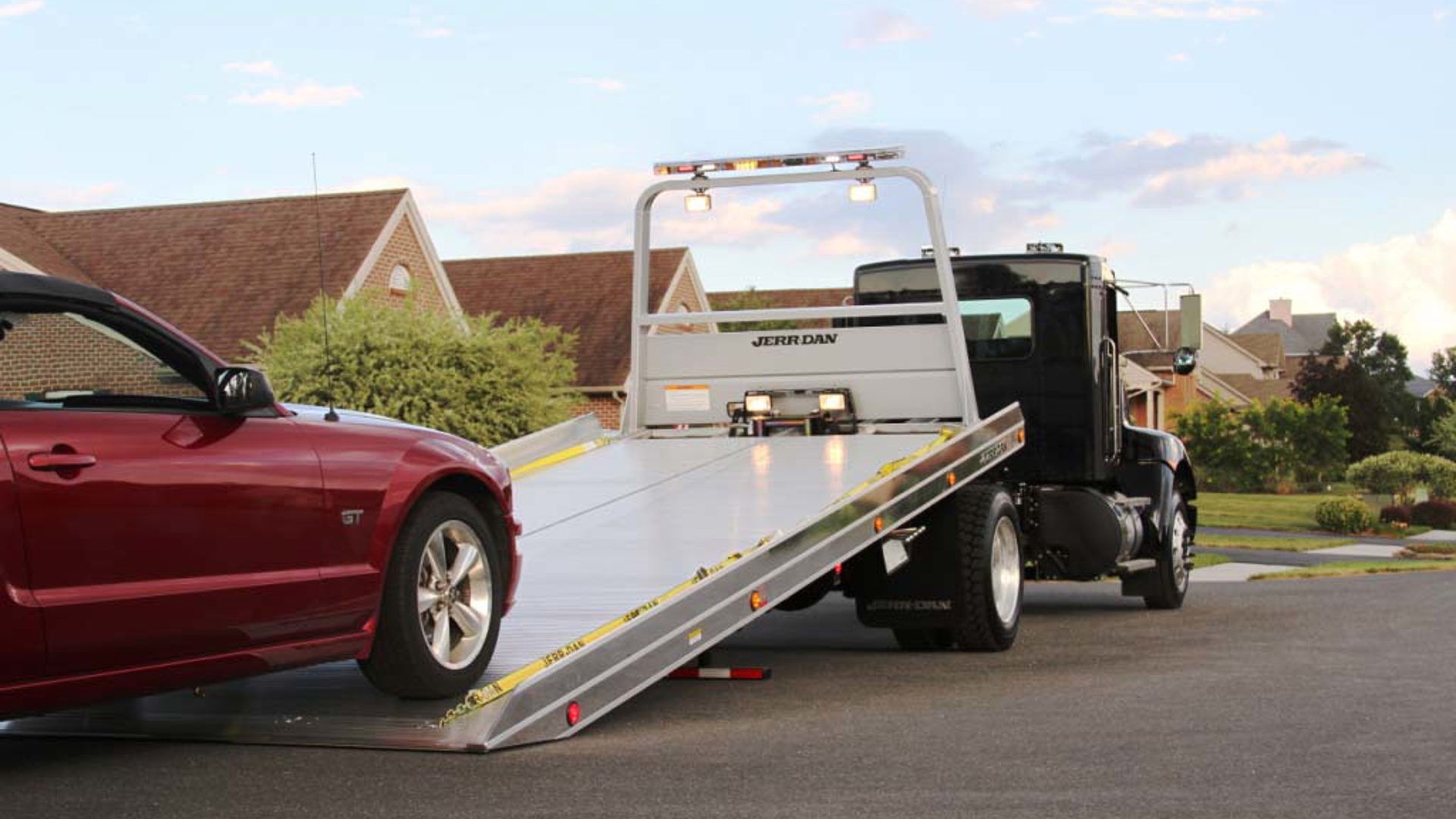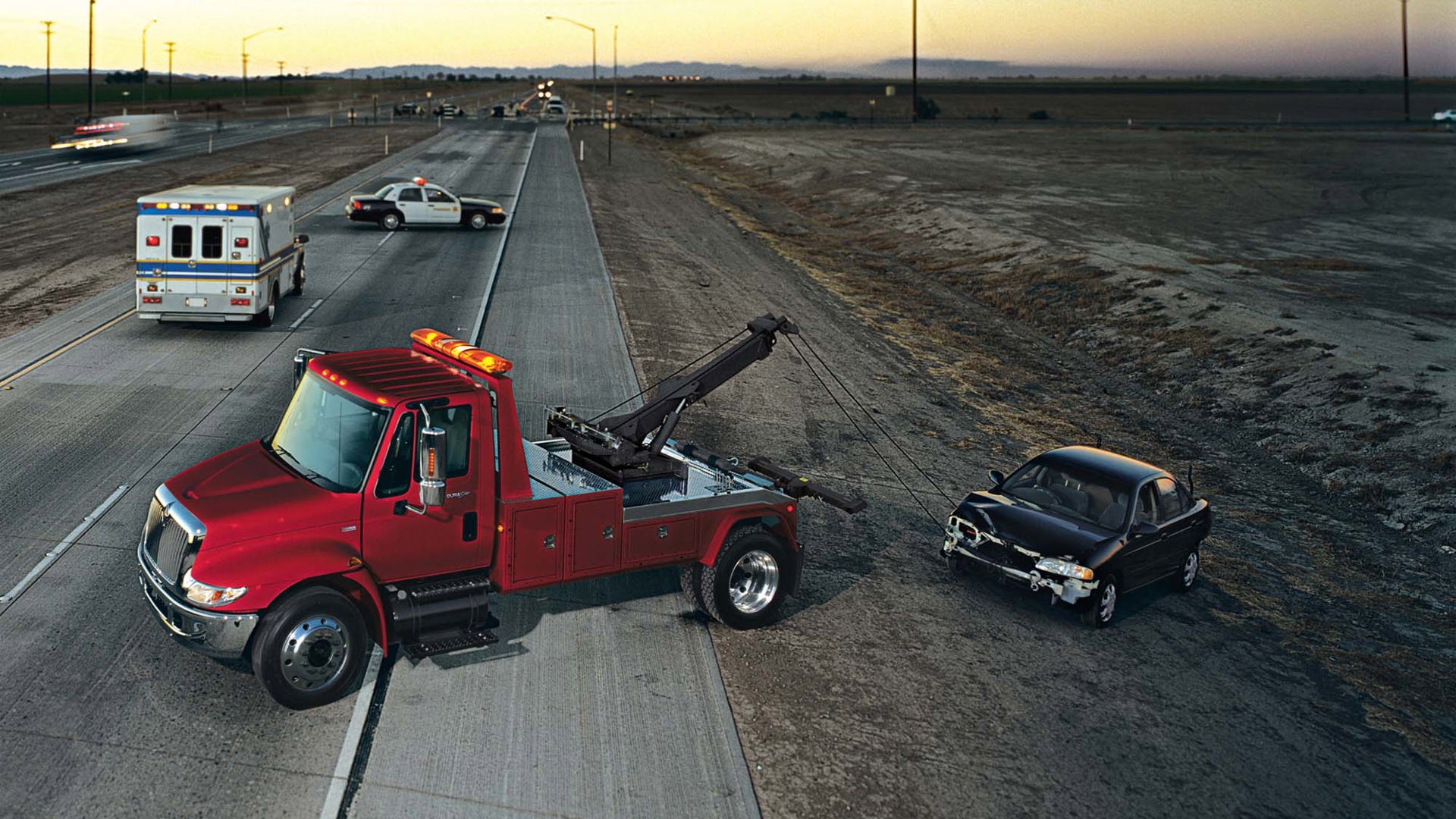Whether it’s a minor fender-bender or something more serious, a car crash is definitely going to ruin your day. Still, you can get through it a little easier if you take steps to protect yourself at the scene. Here’s how to do it.
Stay calm
Unless someone’s badly injured, the worst part – the crash itself – is now over. Take a deep breath and make sure everyone’s okay. If your vehicle’s still running, put it in Park and turn off the engine. Take a photo of the other driver’s licence plate or write it down as soon as you can, in case they drive away.
Hold your tongue
Don’t admit fault in the crash – don’t even say “I’m so sorry this happened!” It’s up to your insurance company (and, perhaps, the police) to figure out who’s to blame. Even if everything seems straightforward, there might be something in your favour that you haven’t considered – but the other driver will have witnesses who heard you say you were responsible.
Be aware of your safety
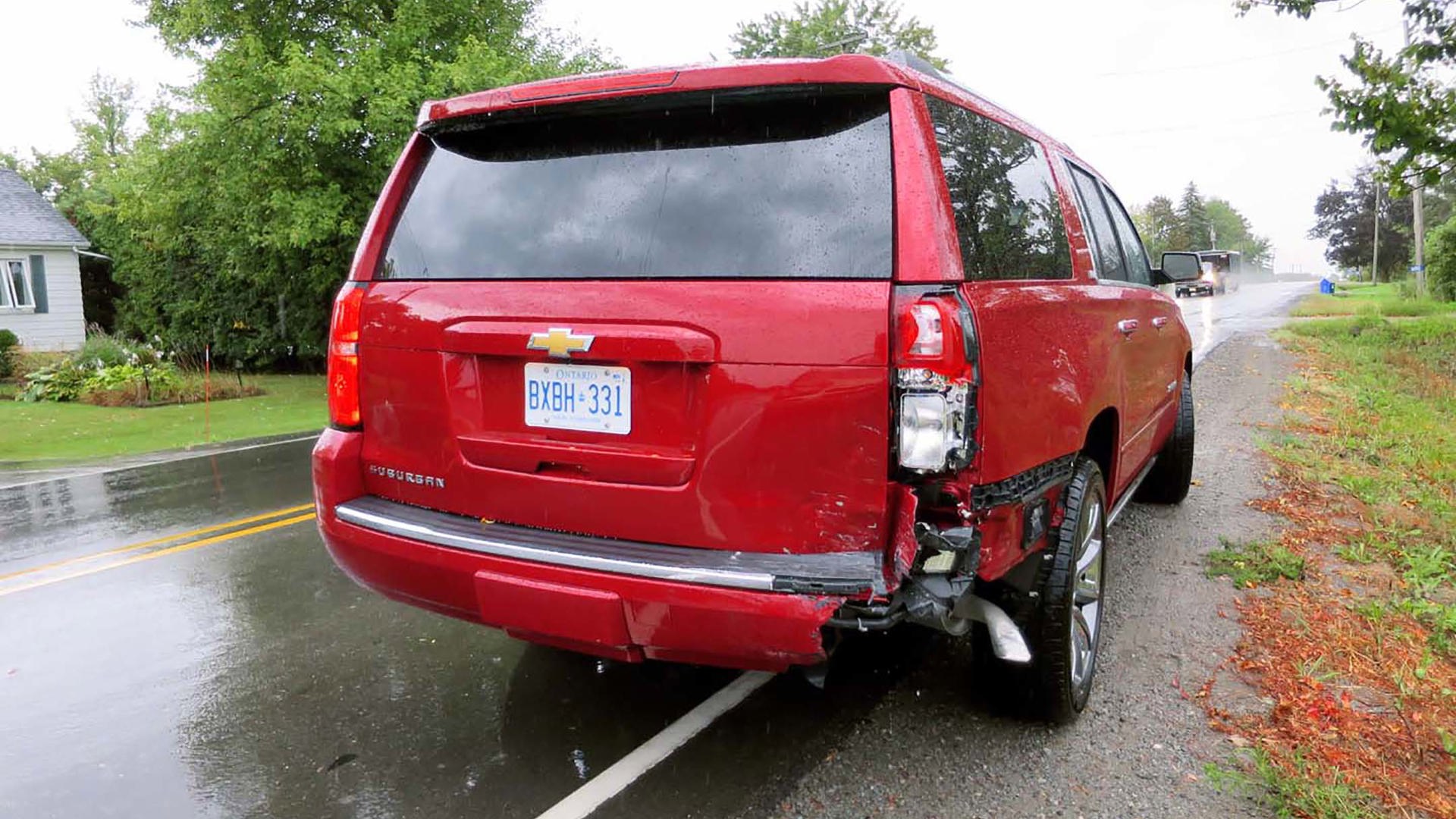
Always think about where you are and what’s around you. If you’ve crashed in a live lane on the highway, you may be safer to stay in your vehicle. If you do get out, no matter where the vehicles ended up, don’t stand near them. Drivers steer where they’re looking, and “rubberneckers” smash into crashed cars more often than you’d think. Move far away, and if there’s a guardrail, stand on the other side of it.
Be especially cautious if you’re taking photos of the collision to prove your side of the story. Concentrating on the screen, rather than on traffic around you, could get you hurt or even killed.
Collisions can bring out the worst in people. If the other driver becomes abusive or threatening, get back in your vehicle and lock the doors. Call the police, if you haven’t already, and report that you’re concerned for your safety.
What about the police?
In many jurisdictions, police won’t come out to a minor crash if the vehicles can be moved, and there are no injuries and damage is under a certain dollar amount. Instead, you have to go to a collision reporting centre. However, it’s always a good idea to call in anyway (on a non-emergency number, rather than 9-1-1, if it is minor), and follow the instructions you’re given.
It’s okay – and even encouraged – to move the vehicles off to the side if they’re blocking traffic.
Vehicle insurance fraud is a huge problem in Canada. If you suspect you’re the victim – such as if someone pulled in front of you and immediately hit the brakes, or several people in the other vehicle are complaining of injuries – call the police and tell them this. If possible, call your insurance company right away and tell them as well.
And tow trucks?
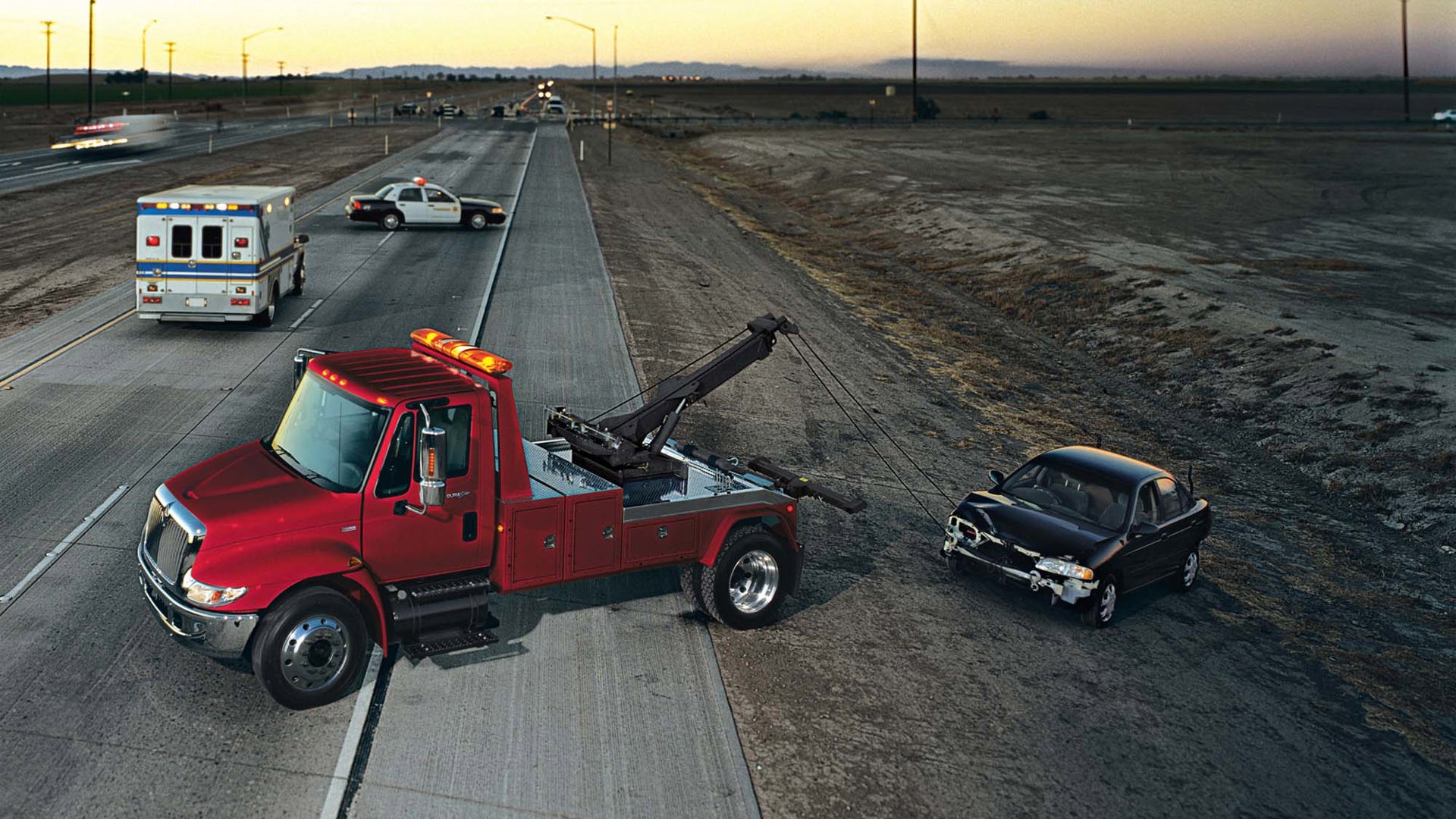
Not all tow truck drivers are out to scam you, of course, but be cautious. You definitely don’t have to go with the first truck that shows up, and you can decide where your vehicle is taken (unless the police direct you otherwise).
If you have roadside assistance through your vehicle, or membership in an auto club, call them. They might not be able to provide the service for free, but you’ll get someone you can trust. If you’re not sure where to take your vehicle, call your insurance company to recommend a collision repair facility.
If you do have to deal with an unknown towing company, protect yourself. Don’t let the driver hook up until you know, in writing, how much it will cost and how the driver expects to be paid, and where your vehicle is going to end up.
Don’t rely on memory
As soon as possible, make notes on what happened. Include the time, weather conditions, where the collision occurred (including street names and closest intersection), what directions the vehicles were travelling, how fast you were going, what damage was done to the other vehicle, etc. It’s helpful to draw a diagram, too – your insurance company will want to know all of this.
If you’re exchanging information with the other driver after a minor collision, you need his or her driver’s licence, name of insurer, policy number, year and make of vehicle, and licence plate number. Get the names, addresses, and phone numbers of any witnesses. Contact your insurance company as quickly as possible – the sooner you do, the sooner your vehicle is repaired.
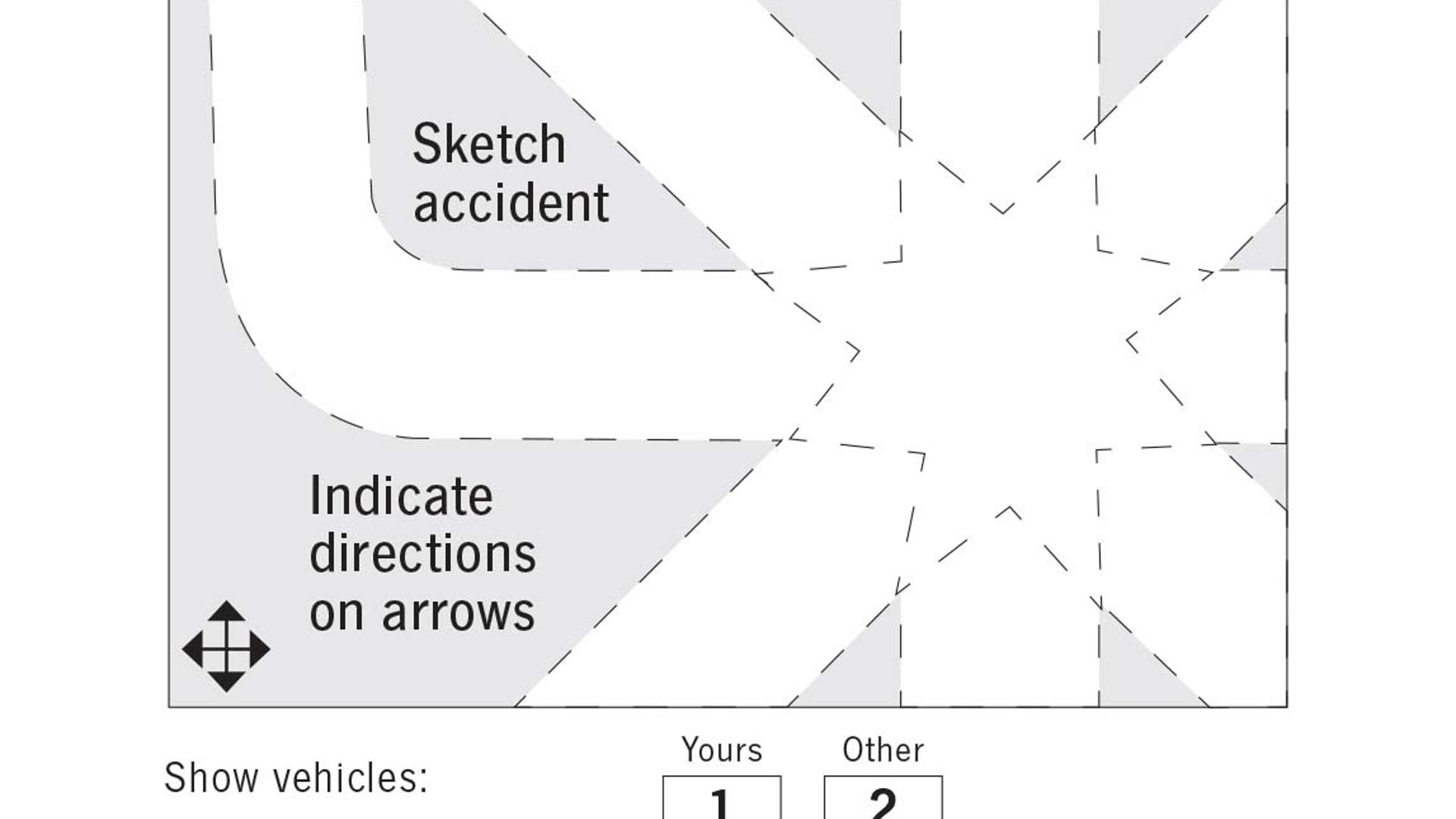
Cancel the cash
If the other driver offers cash for the repair, rather than go through the insurance company, should you accept it? We think it’s a very bad idea. For one thing, vehicles are pretty complex these days: what looks like a minor bumper ding can quickly get pricey if the parking sensors are damaged, for example. What you accept on the spot might not be enough once the damage is properly appraised. And that includes you – with all the adrenaline released during stress, you might not notice an injury right away.
Should you offer cash? Again, we say no. If your insurance company finds out, you could have your policy cancelled for not reporting it. And should that other driver later decide they didn’t receive enough and they report it, you could potentially be charged with leaving the scene of a crash.
There’s a lot to remember
For most drivers, thankfully, crashes are a rare occurrence, which makes it even less likely they’ll remember everything they need to do. Many insurance companies and auto clubs offer step-by-step instructions about what to do after a collision. Ask for it (print it out if it’s downloadable) and keep a copy in your glovebox. You can’t make a crash un-happen, but you can make it easier to get through.
